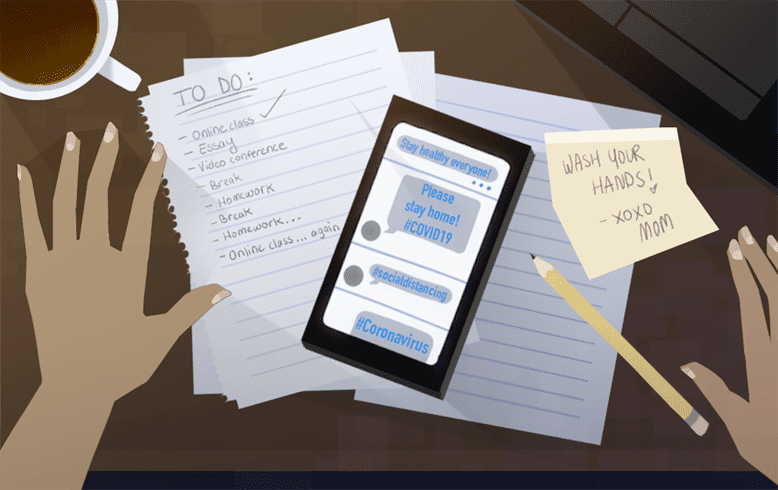It’s midmorning. You’ve just woken up and you lazily stretch out of bed and walk five feet to your desk to log on to your online class. Afterward, you make some lunch, watch some TV and do whatever homework you may have. This is now the same routine shared by almost all college students across the country, regardless of major or year.
At the moment this current situation seems mundane and repetitive, but just because it may be dull doesn’t mean it isn’t worth documenting.
In the midst of a global pandemic, your first thought may not be to pick up a pen and start writing about your day. If anything, that is probably the last thing anyone would want to do. Nonetheless, recording our lives during the COVID-19 pandemic is something that can benefit people in the future.
Our general understanding of how pandemics have shaped history rely heavily on everyday accounts of people who lived through them. While today’s may not include people writing letters to loved ones describing an outbreak in their town, people are describing their day on apps like Instagram and Twitter.
Just because these methods are different and more modern than those used in past outbreaks like Spanish flu or Cholera, they are still important for future generations to understand how the world was affected. We know how Spanish flu was spread throughout a World War I army base because of the diaries and personal accounts from the era. Future generations will know how COVID-19 was spread because of our efforts to modernly document it through social media platforms.
What we know about Cholera outbreaks in London during the mid-19th century are due to the diaries and maps that ordinary people kept. While residents from New Jersey may not be drawing personal maps of their community spreads, Instagram stories sharing testimonies of nurses and healthcare workers will be just as valuable.
Phrases like, “social distancing” and “community spread” have reshaped the way we live our lives in the short amount of time COVID-19 has required most Americans to stay in their own homes. They have become part of the vernacular of anyone living today, but, in the future, those phrases may not be as clear. By documenting our lives we will help memorialize these tiny moments in history.
The ways many have been dealing with being isolated at home will be important to look at in the future not just for historians, but for scientists as well. What worked and did not work fighting a pandemic is used for future outbreaks. Just as isolation helped combat the Spanish flu, it is strongly advised in the current battle against COVID-19 as well.
The world after a pandemic is uncharted territory. What is changed and what is influenced by the pandemic is just as important as the illness itself. They are inseparable. To understand the illness is to understand the world being affected by it. Our ability to document that connection will only help after all is said and done.
In 100 years when college students are learning about the COVID-19 pandemic of 2020, all of our hashtags and Twitter testimonies will be invaluable to their understanding of what life was like. So take time out of your day to document it no matter how unimportant it may seem. Historians will thank you in the future.



